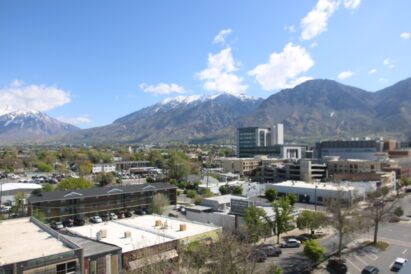Thirsty data centers would have to report water use under Utah bill
The numbers would be public, but not the company names

Courtesy Meta
An undated photo of the Meta data center in Eagle Mountain.Utah’s data centers would have to report to the state how much water they’re using every year under a proposal advancing at the state Legislature.
The vast centers housing rows of servers would have to pay up if they don’t disclose water use, said Rep. Jill Koford, R-Ogden. The bill she’s sponsoring would fine them $10,000 for every day they’re out of compliance.
“We’re very serious about protecting Utah water and making sure that we’re using it wisely,” Koford said.
A legislative water development panel agreed, voting unanimously Thursday to send the proposal to the full House for consideration. State lawmakers convene for the 2026 legislative session in January.
More data centers are cropping up in Utah and around the country to power artificial intelligence and other digital services. The construction is drawing attention to the massive amounts of water it can take to cool servers, with some using up to 5 million gallons of water in a day — more than 12,000 times the average use for a household of four.
Koford said the National Security Agency’s data center in Bluffdale uses more than 23 million gallons a year, while Novva, a low-water-use data center in West Jordan, uses about 85,000.
If the Utah bill passes, officials in the Division of Water Rights will get to see which data centers use the most water, but the public won’t. When it posts the numbers online, the state will remove identifying information to try to protect the companies’ intellectual property, Koford said.
“We have some really great partners who are bringing in economic development to the state, and they are reinvesting in our communities and in water,” Koford said of the data centers while speaking with reporters.
But she has questions, she added: “What are you diverting? What are you consuming? What are you discharging? So that we can get a handle on it and plan for the future.”
The bill has support from the Great Basin Water Network, a conservation group. No one spoke up to oppose it Thursday.
Koford said the proposal won’t cap how much water the centers can use. Whether the state would impose limits in the future is “a reasonable question to ask,” she said.
To date, the main source of information on data centers’ water use comes from cities’ permitting processes, Koford said, “but our state engineer and our state water division has been left out of that conversation.”
Similar bills have surfaced in at least six states, including Oregon, Indiana and Georgia, according to the National Caucus of Environmental Legislators.



